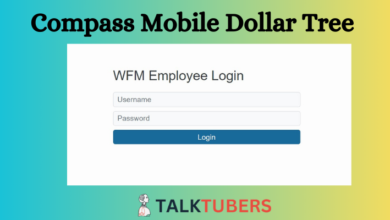More Homeowners Are Switching Insurance Providers – Should You?

Owning a home is one of the best feelings ever. You get a place to stay and be happy while building memories with your loved ones. However, when you look at the technicalities, there’s a lot more to think about.
For me, focusing on home insurance is one of the most important things when it comes to technicalities. Home insurance helps protect your investment by covering unexpected damages. That’s why, a lot of people are switching to insurance providers. In this article, I am going to discuss why you should do the same. Let’s start.
Why Are More Homeowners Switching Insurance Providers?
Since premiums are rising, rivals are offering better policy alternatives, and consumers are unhappy with their present coverage or service, more homeowners are changing insurance companies. The need for lower costs, more alternatives for coverage, and better customer service is what is driving this trend.
Rising premium costs
Homeowners’ insurance premiums have gone up a lot recently. In 2022, the cost to insure your home went up by 12.6%. Experts say it will go up again by 7.1% in 2023. Usually, these costs only rise about 5% each year.
Insurance companies are asking for more money all over the country, not just where natural disasters happen a lot. This makes people look for better deals on their home insurance quotes to save money.
Improved policy options from competitors
Insurance companies are always updating their policy options. They want to offer better deals than their rivals. This means they might give you more coverage for the same price or even less.
For instance, some companies like Amica and State Farm are known for competitive rates. They try to attract new customers by offering unique benefits that other insurers don’t.
Tools like Insurify and TheZebra make it easy to see these new options. You can quickly compare what’s out there without much effort. With 40% of homeowners switching for better pricing, it’s clear that shopping around can lead to savings and better coverage.
Next up is a look at why being unhappy with your current service might push you to switch providers too.
Dissatisfaction with current coverage or service
Many people change insurance companies because they are unhappy with their current coverage or service. This can happen when claims are not handled well or customer service is poor.
Consumer Reports looks at these things to see how good insurers are. If your insurer is rated low for these reasons, you might think about switching.
Sometimes, the problem is that the insurance does not cover what you need it to. Or the company might be hard to work with when you have a claim. If this happens a lot, looking for a new insurer could be a smart move.
Benefits of Switching Homeowners Insurance
Switching homeowners insurance can potentially save you money while offering better coverage options. You might also receive improved customer service with a new provider.
Potential cost savings
When faced with a substantial rate rise of more than 15%, switching homeowners insurance can result in cost savings. Attractive savings, including 20% off vehicle insurance and 30% off homeowners’ coverage, are also available when house and auto insurance are combined.
Another method to increase your eligibility for insurance savings is to raise your credit score.
You have the opportunity to save significantly by making informed choices about insurance providers and leveraging available discounts.
Enhanced coverage options
Improved coverage options can offer superior protection for your home. When researching a new insurance provider, seek additional features and exceptions in their policies. Ensure that insurers are informed about any life changes or property enhancements to potentially receive enhanced coverage personalized to your requirements.
Changing providers might present you with superior policy terms and increased coverage levels. Improving what and how it is covered is just as important as lowering the price.
For instance, your new insurer can have tailored products designed to increase protection at lower costs if there have been notable developments in the always-evolving field of home security systems.
Better customer service
When selecting a homeowners insurance provider, excellent customer service is essential. Independent agents and direct writers provide tailored assistance to address your individual requirements.
Consumer Reports assesses customer service and claims handling to make an informed choice.
Keep in mind that exceptional customer service can have a meaningful impact while picking an insurer.
Risks of Switching Insurance Providers
There are some risks involved in this process as well. Here are their details:
Potential coverage gaps
Switching insurance providers carries the risk of potential coverage gaps. These gaps can leave you vulnerable if a claim arises during the transition period. It’s crucial to review the new policy to ensure it fully covers your needs.
Furthermore, be aware that add-ons and exclusions in the new policy may differ from your existing coverage.
It is important to diligently assess any potential coverage gaps as well. Also, be sure that there’s no overlap or lapse in coverage.
Loss of loyalty discounts
Long-term customers might lose their loyalty discounts when they switch. These discounts serve as rewards for staying with the same company.
So, you’re probably going to lose yours.
Some insurers offer discounts for maintaining continuous coverage. This encourages customer loyalty and can lead to long-term financial benefits. Therefore, before making a decision, carefully consider if you want to lose discounts or not.
Higher premiums with a new insurer
The cost of home insurance can increase if you move to a different carrier. Rate increases are being approved by regulatory agencies.
Even while there may be some initial savings, subsequent rate hikes can outweigh this little savings.
Rates and coverage options with new insurers are influenced by claims history. It’s critical to evaluate if the possibility of future premium increases is outweighed by any potential cost savings.
How to Determine if You Should Switch
Is your current homeowner’s insurance meeting all your needs? Assess and compare quotes, policy terms, and customer reviews to make a well-informed decision.
Evaluate your current policy and coverage needs
Every one to two years, review your home’s insurance coverage to be sure it still covers any changes to your property or life.
Think about how the coverage could be affected by changes to your house or life events. Examining your claims history is also crucial.
Compare quotes and policy terms
When comparing quotes and policy terms between insurers, ensure you’re effectively evaluating the following:
- Assess the extent of protection each policy offers for your property, personal belongings, and liability.
- Consider the amount you’ll have to pay out of pocket before your insurance coverage kicks in.
- Look beyond basic coverage – consider added perks like identity theft protection or equipment breakdown coverage.
- Understand what specific situations or types of damage are not covered by each policy.
- Review the flexibility in payment schedules and any associated fees or discounts for certain payment methods.
- Analyze how much you’ll be paying for insurance with each provider based on your unique circumstances.
Assess customer reviews and insurer reputation
Consumer Reports evaluates insurers based on customer satisfaction factors such as claims handling and overall service quality. When considering a new insurer, it’s important to ensure that the company has a good track record with its customers.
Financial stability is also crucial – look for ratings of A or above from A.M. Best and B or above from Weiss Ratings to ensure you’re dealing with a reputable company.
Mark Friedlander, Director of Corporate Communications at the Insurance Information Institute, emphasizes the importance of checking these ratings before making any decision about switching insurance providers.
It’s crucial to consider both customer feedback and financial stability when evaluating an insurer’s reputation.
Pro Tips for a Smooth Transition
Start early when switching insurance to avoid last-minute stress. Keep thorough communication records for a seamless process.
Start the process early
To avoid coverage gaps when switching homeowners insurance, it’s essential to begin comparing quotes and policies well before the current policy ends. Switching is often easier at policy renewal dates but can occur at any time.
Early planning helps ensure there are no coverage gaps or issues with securing a new policy before the current one expires. It’s crucial to start this process early so that you have enough time to evaluate your options, compare quotes, and make an informed decision about switching insurers without feeling rushed or pressured.
Keep detailed records of communication
Maintaining documentation of all communications with agents and insurers is essential to preventing any disagreements or problems. Keeping copies of quotations, policy papers, and correspondence for reference is part of documenting everything.
These thorough documents can be quite helpful in settling any disputes that could come up during the procedure.
Ensure there is no lapse in coverage
Ensure the new policy is in place before canceling the old one. Verify the activation of the new policy before parting ways with the previous insurer.
It’s essential to synchronize the start and end dates of both policies to maintain seamless coverage as well.
Conclusion
A growing number of homeowners are switching insurance companies. It’s worth taking into account given growing premiums and discontent with current coverage. Examine rivals’ improved coverage choices and any cost reductions carefully before making a decision.
Think about the risks, such as possible gaps in coverage and increased rates with different insurance. If you want to implement the change, start early and maintain thorough communication logs to guarantee a seamless transition.
Before deciding to transfer insurance, thoroughly consider your existing coverage.
FAQs:
What is the meaning of home insurance?
Home insurance means protecting your home and everything else that belongs to it. Insurance providers cover the expenses in case your house is damaged accidentally. In return, you are supposed to pay a certain fee every month according to a certain insurance policy.
What is the best homeowners insurance company?
There are a lot of things that need to be considered while declaring a homeowners insurance company “the best”. However, some major names are USAA and Amica.
What is the most common form of home insurance?
The most common form of home insurance is HO-3. It is also known as a “special form”. It is a popular policy since it includes proper terms and conditions a general homeowner needs and requires.
What are insurance forms?
Forms in regard to insurance are standardized policy types. They outline the coverage, terms, and conditions of a policy. There are different types of these forms including HO-1, HO-2, etc.




